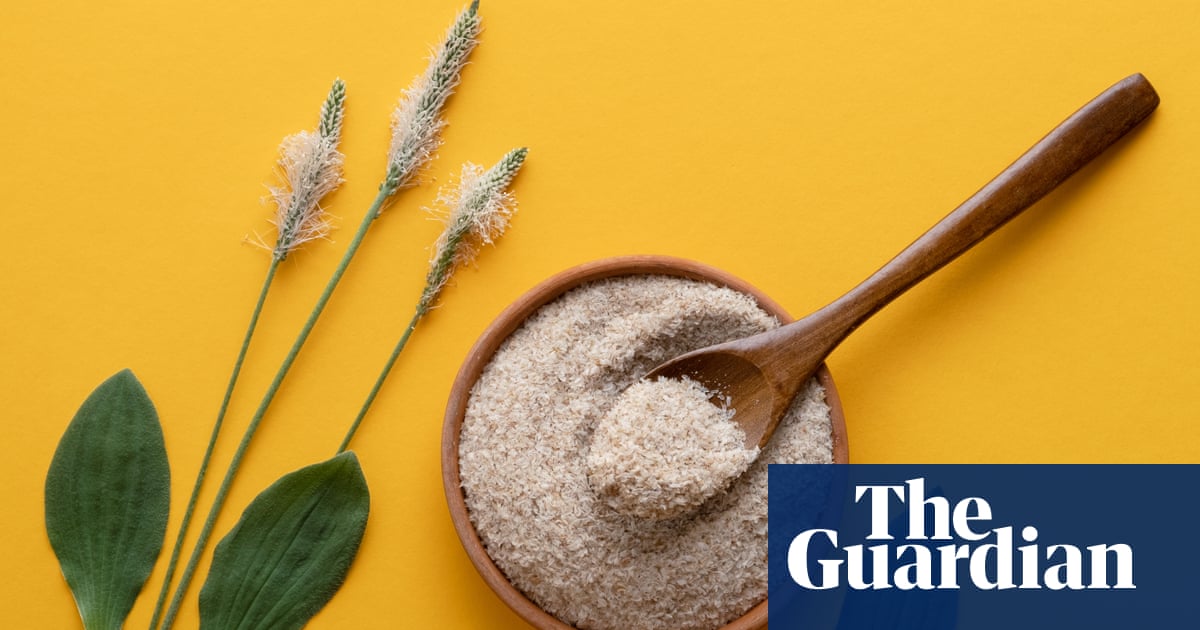The Rise of Psyllium Husk: Nature's Alternative to Ozempic?

In recent years, the landscape of weight loss has shifted dramatically with the advent of medications like Ozempic and other GLP-1 receptor agonists, which have been hailed for their impressive results. As health companies and social media influencers rush to capitalize on this trend, they are on the lookout for what they call “nature’s Ozempic” – affordable, non-prescription supplements that promise similar weight loss benefits. The latest product to gain traction in this realm is psyllium husk.
According to Lena Beal, a spokesperson for the Academy of Nutrition and Dietetics, “Psyllium husk has gained popularity thanks to a wave of social media influencers and wellness personalities touting its ability to suppress appetite, regulate digestion, and even mimic the effects of more costly medications.” However, Beal warns that comparing psyllium to Ozempic is an oversimplification and can be misleading.
On social media platform TikTok, for instance, over 12,500 videos currently feature the psyllium husk tag, showcasing a surge in interest. Despite its newfound popularity, psyllium husk is not a new phenomenon; it has been a staple in Indian and South Asian cultures for many years, known for its various health benefits.
What Exactly is Psyllium Husk?
Psyllium husk is the outer covering of the seeds from the Plantago ovata plant, a shrub that flourishes in sandy soils found in deserts and steppes. In the United States, it is primarily recognized as the active ingredient in over-the-counter laxatives such as Metamucil, which many people use to relieve constipation and promote digestive health.
This supplement can be found in various forms, including pills, powder, or even whole husks that resemble tiny wood shavings. When mixed with water, psyllium husk takes on a gel-like consistency, which is a key aspect of its utility as a dietary supplement.
Health Benefits of Psyllium Husk
While the texture may not be appealing to everyone, the gloopiness of psyllium husk is part of what makes it beneficial. It is a rich source of soluble fiber, as explained by Katherine Zeratsky, a registered dietitian at the Mayo Clinic in Minnesota. Soluble fiber differs from insoluble fiber in that it absorbs water during digestion and transforms into a gel-like substance.
This gel has several health benefits, including the ability to soften stools and increase their bulk, which can help manage both constipation and diarrhea. Julia Zumpano, a registered dietitian from the Cleveland Clinic Center for Human Nutrition, elaborates that this gel can also bind to bile acids in the intestines, which are composed of cholesterol, thereby facilitating their removal from the body and lowering cholesterol levels.
A 2018 meta-analysis published in the American Journal of Clinical Nutrition supports these claims, indicating that a daily intake of 10-15 grams of psyllium husk can significantly reduce both LDL (or “bad” cholesterol) and total cholesterol levels in healthy individuals and those with elevated cholesterol levels.
Additionally, psyllium husk can assist in blood sugar management by slowing the absorption of glucose into the bloodstream. Zumpano notes that increasing fiber intake is crucial, especially given that only about 5% of Americans and 9% of adults in the UK meet the recommended daily fiber intake of 25-30 grams. Each tablespoon of psyllium husk offers about 7 grams of fiber.
Eating more fiber can have numerous advantages, including helping to slow digestion and increase feelings of fullness, which are both sought-after effects of weight-loss medications. However, it is important to note that fiber may not achieve these effects to the same extent as GLP-1s.
When incorporating psyllium husk into your diet, experts recommend starting gradually and making adjustments as needed. Zeratsky suggests beginning with the powder form to have better control over dosage.
Potential Risks of Psyllium Husk
Despite its benefits, experts stress the importance of consuming psyllium husk with ample amounts of water. A general guideline is to drink approximately 500 milliliters of water for every 20 grams of fiber consumed.
Psyllium husk expands rapidly when it absorbs liquid; thus, without sufficient hydration, it can pose a choking hazard and may lead to gastrointestinal obstructions, according to Beal. This precaution is particularly critical for individuals with swallowing difficulties, bowel strictures, or severe gastrointestinal conditions like Crohn’s disease, who should consult a healthcare provider before using psyllium husk.
Moreover, fiber, including psyllium, can interact with certain medications, so it is advisable to consult with a doctor or pharmacist before adding it to your regimen.
Experts caution against viewing psyllium husk as "nature's Ozempic" due to the risks associated with overconsumption. Overreliance on a single ingredient may detract from the need for comprehensive lifestyle changes.
If psyllium husk does not appeal to you, Zeratsky points out that there are many other foods rich in soluble fiber that offer similar benefits. Fruits, vegetables, beans, legumes, and whole grains like oats, barley, and quinoa are all excellent sources of soluble fiber along with various other vital nutrients.

















